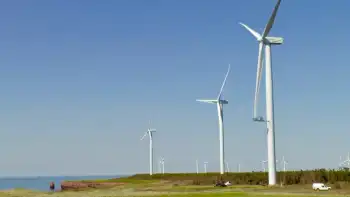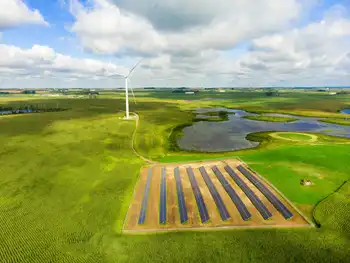Siemens CEO says to restructure abroad
"Siemens AG doesn't need a full-blown and identical representation in every country," Peter Loescher told Die Welt newspaper in a recent interview.
"In future, larger countries will be in charge of smaller countries. There will be regional centers," he said. Loescher said the number of such centers was still under discussion but that it would certainly be fewer than two dozen.
Siemens is active in more than 190 countries.
It is being investigated by the U.S. Securities and Exchange Commission, among other bodies, for making suspect payments to agents whose value Siemens has put at 1.3 billion euros ($2 billion) so far.
Loescher, an outsider who took charge of Siemens in mid-2007 in the wake of resignations sparked by the corruption affair, is also working to speed up decision-making and cut administration costs to bring profitability up to the level of rivals.
He declined to say how long this might take. "We have begun, but it will take time. It's also about a change in management culture," he said.
Loescher wants to cut selling, general and administrative costs by 10-20 percent. They currently amount to 17 percent of sales, compared with the 8-11 percent that leading competitors spend, he said.
Loescher said Siemens, whose main businesses are electrical equipment for energy suppliers, heavy industry and healthcare providers, also planned significantly to reduce the time it took the company to make its annual business plan.
"In the past... we started planning at a regional level in February. By the time the results reached top management it was mid-September," he said. "In the new organization, we will significantly shorten this planning process."
Loescher reiterated that Siemens was in "highly advanced talks with interested parties" about selling its SEN corporate telecoms division, which it has been trying to dispose of for almost two years.
The division, which missed the boat when companies switched to Internet telephony, has lost more than a billion euros in the past two years. "Even (Siemens founder) Werner von Siemens would phone via the Internet today," Loescher said.
He added that although Siemens would continue to evolve, large acquisitions and disposals were not to be expected in the immediate future.
"Now a little more peace can return to the company. Of course there will always be changes but for the moment they won't be on the financial level of the last few years," he said.
Related News

18% of electricity generated in Canada in 2019 came from fossil fuels
CALGARY - California recently announced that it plans to ban the sales of gas-powered vehicles by 2035, Ontario has invested $500 million in the production of electric vehicles (EVs) and Tesla is quickly becoming the world's highest-valued car company.
It almost seems like owning an electric vehicle is a silver bullet in the fight against climate change, but it isn't. What we should also be focused on is whether anyone should use a private vehicle at all.
As a researcher in sustainable mobility, I know this answer is unsatisfying. But this is where my latest research has led.
Battery EVs, such…





